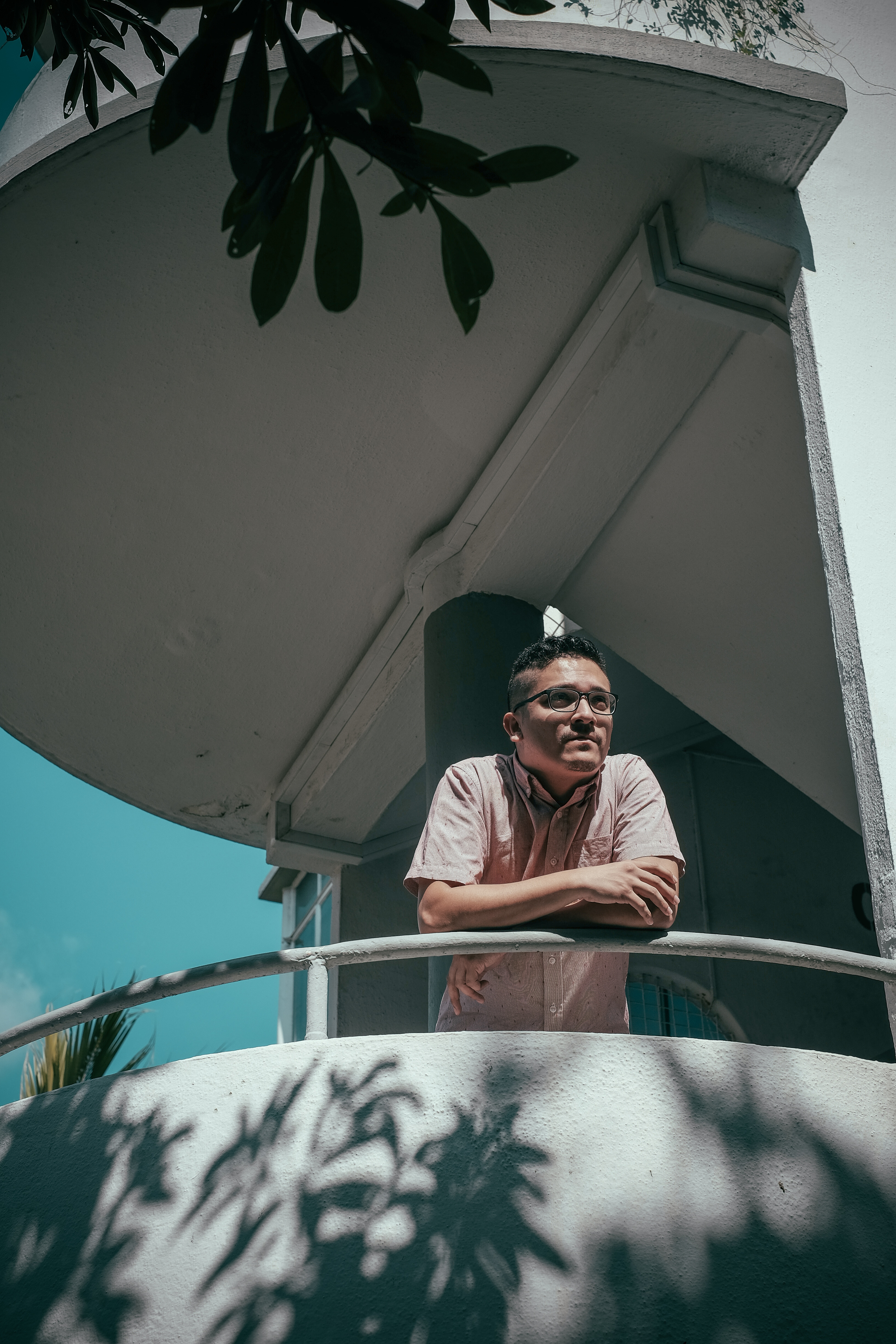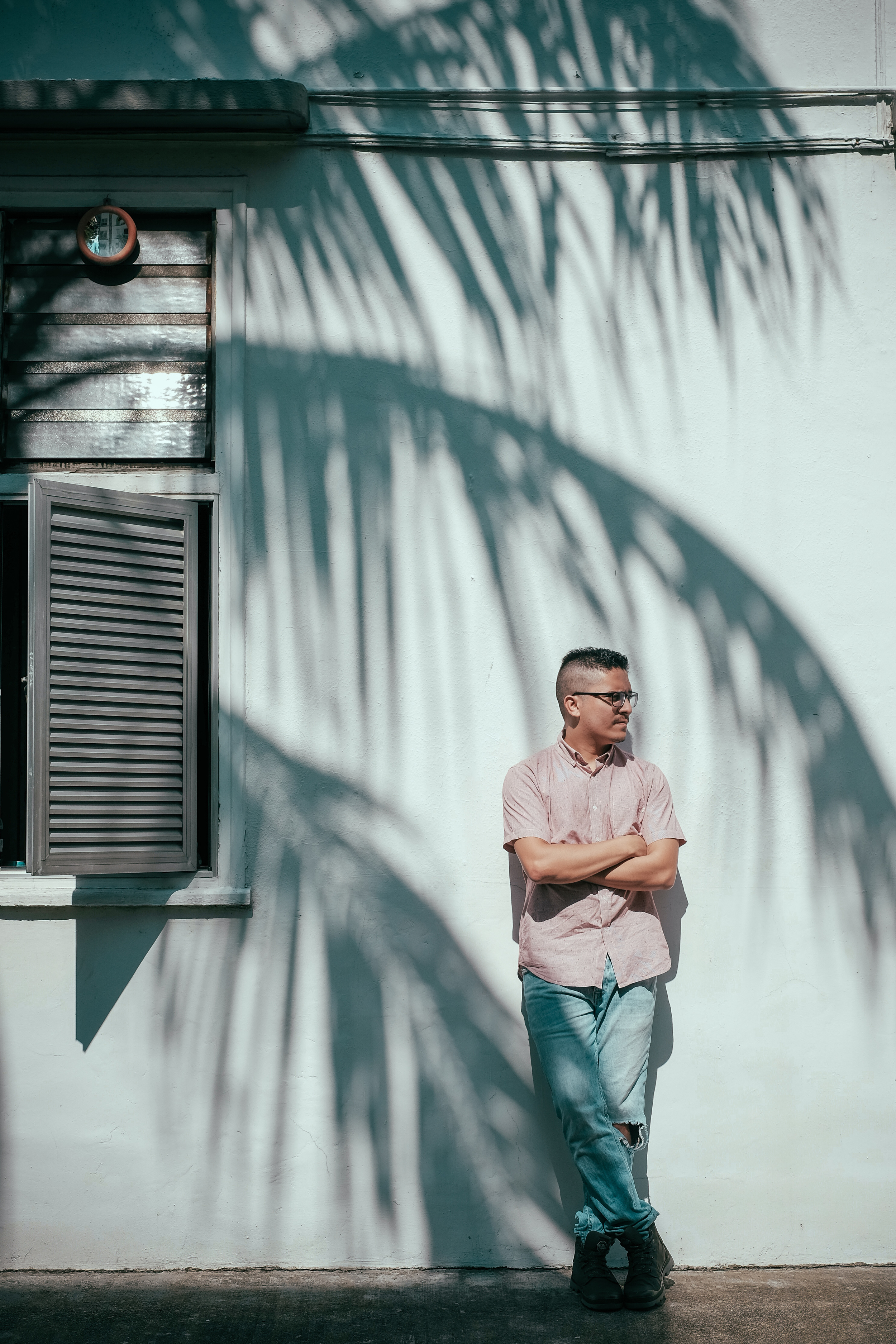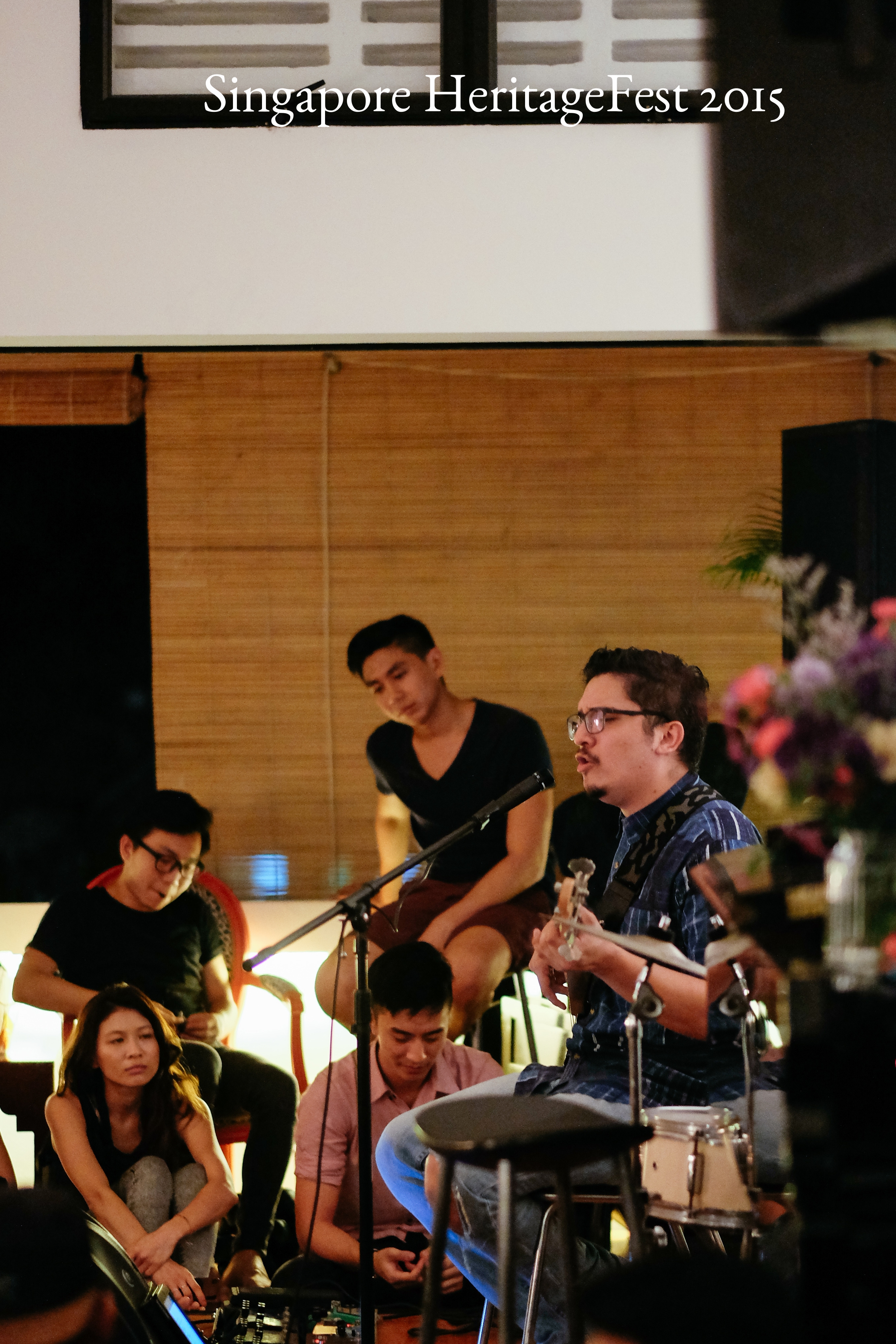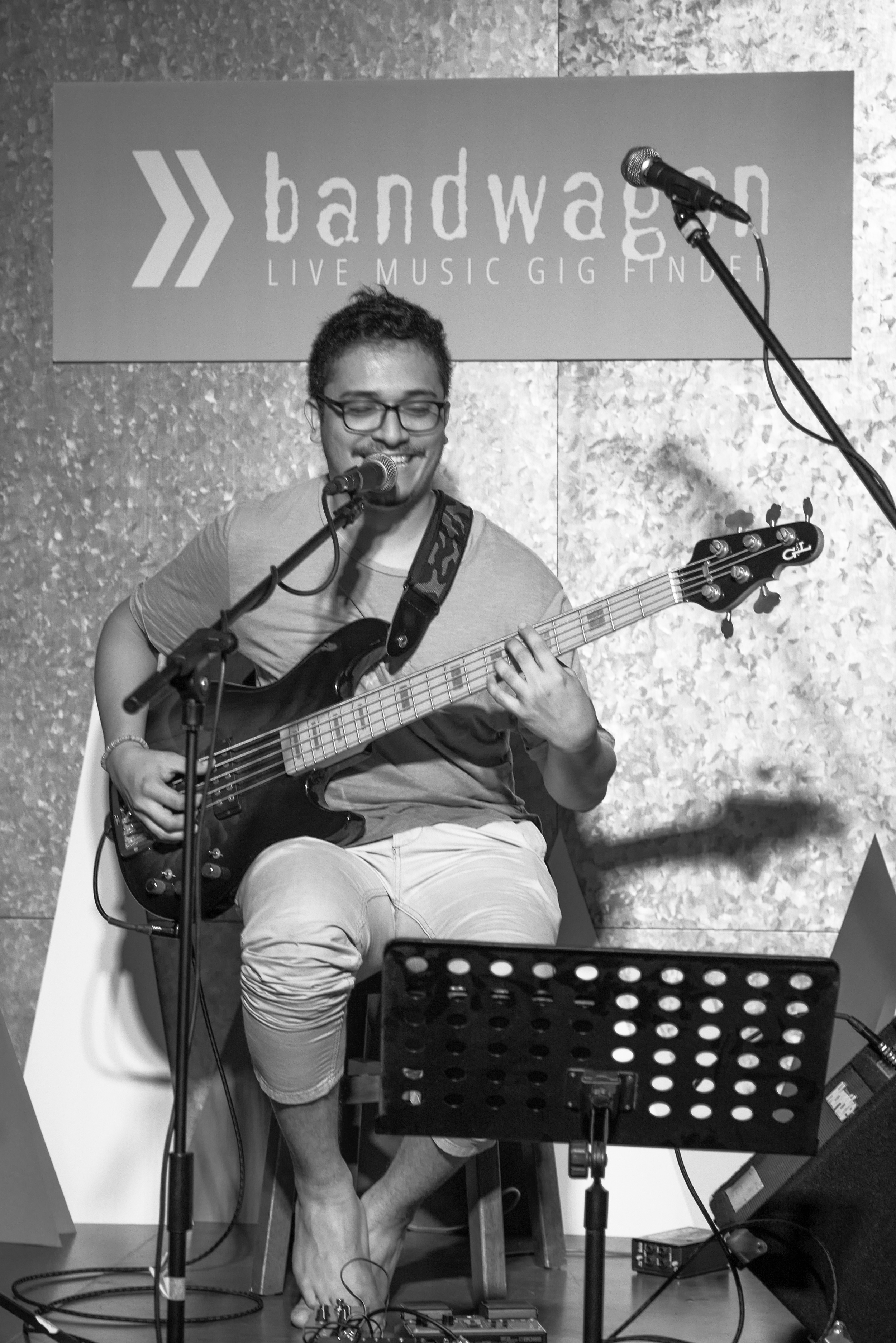Tim de cotta: Guardian of Groove
30 April 2015
Tim De Cotta, with his sharp mind, neat looks and winsome smile, could easily have found himself behind a desk in a bank discussing investment loans for a high net worth client. Or perhaps grading end-of-semester papers late into the evening. But instead, Tim wakes up every day to strap on a bass guitar, plug it in and lay down some soulful, melodious grooves.
Still a rarity amongst artists and musos in Singapore, Tim has taken the plunge into making music full-time. Mackerel finds out why.
Mackerel: How long have you been making music?
Tim: I’ve been playing the bass guitar since I was 17, when I got it for my birthday from my family. I taught myself to play alongside Jamiroquai albums that I bought while visiting the dentist for braces the year before. Haha. Return of the Space Cowboy really turned me onto the beauty of playing the bass and how it governs the feel of any song. My sisters and parents would always be singing in the house so naturally I would sing whatever I was listening to at the time. I got into playing music professionally as a bass player with my first band SIXX back in 2007 and have been playing through university and ever since.
Mackerel: Who are your inspirations?
Tim: Stuart Zender made me get into bass playing through the Jamiroquai albums that I bought with all my spare lunch money in school. Before, I listened to a lot of hip-hop and RnB from the 90s from Joe Public to Kriss Kross. Michael and Janet Jackson were HUGE childhood influences. I started listening to D’Angelo when my sisters bought the album (they are 7 and 9 years older than I) and from there, when Napster was around, I found all their contemporaries. MTV helped me find a lot of RnB and Hip-hop on MTV Jams. Soon, I found Maxwell, Jill Scott, Common, Bilal, Musiq Soulchild, Erykah Badu, The Roots, Dwele, Q-Tip and the like. Listening to all these guys really shaped the way I was inspired and what I gravitated towards. I also went back in time into soul music, funk, jazz, samba and bossa nova. I have my parents and sisters to thank for a wide variety of musical influences. Pretty lucky.
Mackerel: Why the bass?
Tim: The bass sets the foundation for groove and melody for any kind of song. It’s a good bridge between tonal centre (or lack thereof) and percussion. So, in a way the bass can ultimately govern where a song goes and how it feels. In a performance, people don’t really hear the bass as much as they feel it. Also, at the time when I wanted to play an instrument it was between the drums and the bass and so eventually when my folks got me a bass for my birthday, that was it. I like to dance and feel the beat, too, so it was natural to get on an instrument that could create that foundation. I still do all my writing best on a bass as it really helps put down skeletal versions of any song very quickly, then I complement it with my voice and determine melodies and chordal voicing thereafter.


Mackerel: You perform both solo and in a couple of bands. How different are the experiences?
Tim: Playing for and with other people versus playing by and for yourself are two really different things. In a band there are dynamics in play that are governed by every member, their influences and life experiences. And these are advantages as much as they are limitations. Vice-versa, with music that you own and solely create, there is the advantage of a greater amount of freedom and purity to a creative idea but the limitation of execution and other perspectives and approaches. So, it’s a good balance to have both.
I learnt this especially when my time with SIXX didn’t last and I was left to start out all again on my own. I had kinda put all my eggs in one basket and when that basket broke, well…
But also, doing a lot of different things in music versus just one singular thing improved me as a musician and writer. I had to adapt and to learn new styles and techniques, raised my level as an instrumentalist and also became a lot more daring to let my own stuff be heard. There is a ton more work when you are doing a lot of things but it really benefits the art and the nurturing of it in a lot of open and vast ways versus a myopic stagnancy that can result from being complacent in only one aspect of music.
So, everything completes me as a musician now but there is no end game. It’s a process of progression and evolution that changes and brings me to new places with all my different bands and band mates and in my own solo project as well. Everything contributes to what I can give to the world as an artist.
Mackerel: What challenges do you think the local music scene faces and has it actually become better over the years?
Tim: In Singapore, you have a unique problem in the form of saturation. We are required to evolve and churn out new stuff faster than anywhere else. But, this can be a good thing too. There is so much talent but not many avenues for this talent to be evenly expressed.
We also face the challenge of audience reception. There is a perpetuating culture of doing things that are expected and not much room for pushing boundaries higher and artistry further, though that is slowly changing, too. But, audiences don’t really understand the intricacies of musical genres and the art behind creating music. They are force-fed by popular opinion and normally look elsewhere for validation of their musical choice rather than look inside to see what they truly resonate with.
Support from the media is still lacking. Radio doesn’t play enough local music and as such, people don’t expect that local music exists, much less that it’s good. IT IS. Local music and musicians are pretty world-class. Opportunities just aren’t as kind. But that is also why you see a lot of local acts making it big overseas before getting the same recognition at home. However, isn’t that kind of a business model for most things Singaporean?
We are in such a small country it’s hard to do local tours and stuff. Singapore is just ONE stop on a tour line for most acts so if you think about it that way, we have our paths cut out for us as Singaporean musicians.
Mackerel: Other than yourself (of course!) who are some up-and-coming bands we should listen out for?
Tim: Cold-cut Quartet is amazing… TAJ just had them open for us at our EP launch. They are breathtaking. We are truly inspired by them. The Steve McQueens are everywhere now and that is well deserved! R!ot in Magenta and Intriguant are dope, too. The Good Life Project have such great vibes. Spacedays have a distinct juju and psychedelic quality to their brand of mat-rock. Weish and .gif are captivating. Disco Hue are hidden gems that need to be discovered. You should check out my other bands L.A.B. and neoDominatrix too; we have some great music out for you to buy!
Mackerel: Tell us about your new album, Astral Journey, with your band TAJ. What kind of journey do you envision for listeners?
Tim: The Astral Journey is exactly what it says. Otherworldly, while still based in this world. It is of course rooted in instrumental soul, jazz, funk and groove but uses these starting points as a springboard to greater ideas and introspection. It makes you think about vibration and parallel universes that we all make our way through as beings of the earth, of the universe and of time. So, that’s what we are trying to begin, but in the end it is up to the listener how deeply they want to dive into it. It is what it is.
Mackerel: If you could share the stage with any musician/band in the world, who would it be?
Tim: I would love to play with Maxwell, Kendrick Lamar, Hiatus Kaiyote, Erykah Badu. Getting to watch Flying Lotus and Thundercat from backstage would be amazing, too!
A sampling of Tim's music:
Text: Marc | Photos: Marc and Tim De Cotta




